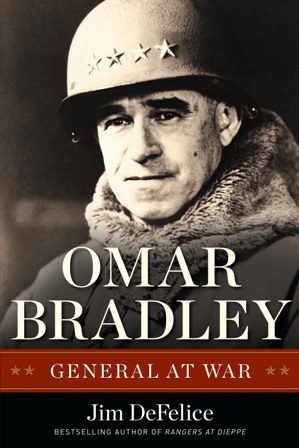Arts & Entertainment
Arts & Entertainment
First Chapters: "Rich Like Me"
- Details
- Published: 11 September 2012 11 September 2012
 Why Real Estate?
Why Real Estate?
In recent years a number of businesses and professions have been billing themselves as the second oldest profession. I have no doubt that the honor belongs to real estate. Ever since that primeval Australopithecus took possession of that ancient cave, declared his ownership and physically evicted his competitors, real estate has been a consuming preoccupation. Ownership has come a long way since then. Brute force has been replaced by money and the rule of law. Though these tools replaced one form of power and strength with another, the latter version attempts to protect the vulnerable.
Property ownership goes way back. Deeds were one of the first uses of written language. There is a cuneiform deed in the Louvre, work that has been dated 2600 BCE. The Metropolitan Museum of Art has one that dates to 2800 BCE. Real estate has played a key role in all economies throughout history. Its investors have made and lost fortunes of every size. It has been the cause of war, famine, prosperity and invention. The ownership of property or lack thereof has influenced almost every ideology you can think of. It is a vast, undulating, economic juggernaut that, while ultimately expanding in value, can suffer from the most convoluted setbacks if you happen to be in the wrong location.
The pursuit of wealth through real estate is a life adventure. You’ll encounter plenty of thrills and chills along the way. You’ll take many wrong paths and experience many false starts. Finding your property is a discovery rivaling many of life’s great moments. When you bring together a group of like-minded individuals to form the ownership entity, you can expect to participate in negotiations every bit as intense as the six-way talks over North Korean nuclear disarmament. There will be good times and great times; and yes, there will be bad times, even times of danger and exposure to serious losses. That’s what an adventure is all about, and each adventure is unique.
As a real estate adventurer, you are open to every form of property investiture as a means for profit. This means that at every juncture, you are on the lookout for that diamond in the rough and that rough in the diamond. An open mind and flexible spirit are all that is required. If you are a rigid thinker and tend towards inflexibility, please run back to the bookstore where this book was purchased from and hope your return period hasn’t expired. This volume will be of no help at all.
The best news of all is that now is always the time to purchase property. Underlying the entire book is the principle that “there is always a best deal.” The type of deal you will pursue will change with economic cycles and preferences, but even in the worst of times, the buy of a lifetime can still be had. It is because this business does not have an even market. What do I mean by an even market? Stocks are traded in an even market. If the price of a stock is $34.75, that is the price. You might get it for $34.73, but that is about it. Real estate parcels, on the other hand, are held individually and each one has its own story. It is that unique story that can create the fantastic opportunities that this book is all about. The majority of the properties I’ve bought have sold for 50% off. That’s like getting our stock for $17.37. Of course, I can’t turn around the next day and sell it for full list price, but if I bide my time, I will cash in for list price and more.
By following the principles of this book, anyone with a little start-up capital and a willingness to stomach the ups and downs of business can tap into this juggernaut and accumulate virtually any amount of money. The amount is limited only by your willingness to persist and the amount of time you spend. Real estate pays little attention to an individual’s physical make-up, it is not sexist, and it isn’t racist. It will never ask you to show your diploma or file transcripts of your grades. When you show up to the plate with the money, the deed or the lease, you will be treated only as a principal. But be warned that principals can be open to some pretty rough treatment. Then again, that’s how the game is played. It’s also a game where you get to choose your own hours, working conditions and persona.
You can exercise in the morning and show up at noon. Lunch hours are as long as you want them to be and vacations are plentiful. There are practically no real emergencies and everything can be handled at a comfortable pace. Real estate does, however, stay with you. Be prepared to occasionally lose your off switch. There will be times when you won’t be able to leave your work at the office. All business is like that, but when it comes to real estate you are very much alone. There are no real allies, just collaborators of convenience.
Join Andrew Field at Ye Olde Warwick Bookshoppe on Saturday, Sept. 22nd, 6-8 p.m., for a booksigning. Click on image for details and a short book review.
First Chapters: "ABOUT FACE"
- Details
- Published: 12 July 2012 12 July 2012

Chapter 1
RUTH TALBOT LOOKED DOWN and winced. She couldn’t believe today, of all days, she’d forgotten to change out of her commuter’s red high-top sneakers into the pumps that would complete her corporate camouflage. From the knees up, she fit right in at the big meeting with the new CEO in the ultra-elegant conference room with small oil paintings in ornate frames. But her feet belonged in the playground.
“I want that list of criteria to go out to all our vendors right away. Right away. So they’ll know exactly how Mimosa Inc. will decide whether they’re in or out,” said Jeremy.
The guy from Purchasing—was his name Ralph— answered, his voice dissolving around the edges like a milk-dunked Oreo. “We use quite a lot of vendors, actually. We always have. And some of the criteria we use for them are difficult to quantify. They’re intangible, really. We’ve always—”
“Intangible won’t do. No, no. Won’t do at all. We need to know exactly, precisely how to decide who we’ll do business with. Right away. Criteria on my desk by close-of-business tomorrow. Then out to the vendors next week.”
Poor Purchasing-guy. “Intangible” turned out to be a poor word-choice.
“Next, the splashy launch of ‘Lipsticks & Scarves,’” Jeremy said as he looked at Ruth with raised brows. “The results are … shall we say ... very disappointing.”
Disappointing? What’s he talking about? Ruth cleared her throat and spoke a little louder than was necessary. “These results are well within our standard for pilot programs. We can make them better, yes, you’re right about that. But that’s why we pilot, so we can tinker with the variables. Meanwhile, they’re quite decent.”
“Decent? Dee-cent, you say?”
Uh oh, she thought. Looks like “decent” goes in the garbage heap with “intangible.”
“Maybe they are what you call ... decent ... but no more than that. Maybe under previous management, that was good enough.” He looked around, making eye contact with everyone at the table, one by one, as if they didn’t already know he was the new management. “But not now. There’s a new sheriff in town, and now we need better than decent. We need a grand slam.”
“I agree, that’s the goal, a grand slam, but pilot programs are almost never grand slams. They’re usually singles. This one, I think, was even a double.”
I’m using baseball metaphors? How low can I go? Her disappointment in herself triggered the day’s first hot flash, a bit earlier than usual. The fire started somewhere in her chest and galloped through her neck, up to her head, while also traveling south. She felt every thread of her clothing against the sweat-sheen on her skin. To her amazement, people had said they didn’t notice anything, even when she thought she was ablaze.
“I was referring to a grand slam in bridge. All the tricks. Doubled and re-doubled. Lots and lots of points.” Jeremy smiled a quick, minimal smile, managing to move only the muscles at the edge of his lips but not engage his cheeks or eyes. With his dry skin, sharp nose, and darting tongue, he looked like a snake. Or maybe he just needed moisturizer.
“What do you plan to do about this, Ruth?”
Rather than walking around as she spoke and revealing her feet of canvas, she stood in place and grabbed the edge of the table. Richly grained walnut, highly polished, the color of dark rye toast with honey, it was the centerpiece of this room of beauty and good taste. Being here stimulated and calmed her senses at the same time, like walking along the beach.
The first few times at the table, she’d thought she could only say very important things. Now she knew the setting itself made anything sound very important. She concentrated on the rare pleasure of towering over people as she reviewed the figures that backed up their decision to launch the innovative packaging of lipsticks with matching scarves.
“The data told us loud and clear this was an idea worth pursuing. And the data were right, of course, based on our preliminary results. People didn’t mind buying a lipstick to match one scarf if the set was appealing and the price was right.” She looked over at Jeremy.
Disappointing? Don’t be ridiculous.
“Just out of cur-i-o-s-it-y … ” Jeremy dragged out each syllable with a deep, slow cadence to his voice, and Ruth could almost hear mournful cello music as accompaniment, “... who came up with this idea? Marketing? R&D? Perhaps even ... even Dean himself?”
After forty years at the helm, Dean had sold Mimosa to B&D, a conglomerate looking to “feminize their offerings,” as it said in the press releases. Jeremy had been B&D’s Senior VP of Operations and was chosen to transform Mimosa from a small touchy-feely family-owned business to a rootin’-tootin’ buttoned-down operation.
“You know, I honestly don’t remember,” said Ruth, catching a glimpse of Judy staring down at the table to avoid giving away her authorship. “Anyway, we work as a team, so it doesn’t really matter.”
She shuffled her papers for a second. “But you’re right, we can make our results better. Why don’t we turn our attention to how to do that.”
Disappointing, indeed.
The rest of the meeting was no more boring than usual, and they did come up with a plan to redesign the Lipsticks & Scarves campaign. Ruth hoped she and her sneakers could be the last to leave.
Ordinarily, she wouldn’t have cared so much—she was senior management, after all, and had been at Mimosa for twenty-five years, so people paid more attention to her track record than her track shoes. But Jeremy had gotten rid of a bunch of people soon after he took over, quietly, no muss no fuss. Certainly, sneakers were not grounds for dismissal, but she didn’t want to get off on the wrong foot. So to speak.
She took as long as she could to put her papers together and enter notes into her organizer/planner. Red for meetings, green for phone calls, blue for To-Do List entries. Pat Givens, Ruth’s Assistant Product Specialist, made nice to Jeremy on her way out. Did she actually say she enjoyed the meeting?
But Jeremy out-waited Ruth. “I’ll see you at the benefit tonight,” he said to her.
Facing Jeremy in his perfectly-tailored suit, conservative tie, and bookish horn-rimmed glasses, she was glad she’d dressed the part for today’s meeting, invoking her standard rationalization: “It’s not phony, it’s effective packaging, as if I’m one of our products, sitting on the shelf to be seen and evaluated.”
She knew she undercut the gray suit and pearls by gelling a few spikes in her short, dark hair—the kind of spikes usually seen on 20-year-olds with multiple pierces. Oh well, her whole life was a mixed message anyway. There was the normal middle-aged middle-class corporate executive who lived in the suburbs, and then there was the overgrown hippy. Trying to integrate the two parts of her identity felt like juggling three live chickens. On an inclined plane. In high heels.
“I’m glad you’ll be there. It’s clear we disagree about the status of the Lipsticks & Scarves results, but I’m sure we’ll agree about raising lots of money for a worthy cause. I think we’ll set a record tonight. And we’ll get great publicity in the process.”
“I love opera. Turandot is one of my favorites.”
Jeremy told Ruth he wanted to follow the re-design of the Lipsticks & Scarves campaign very closely. It was his way of delving into the actual work at Mimosa. He was in high guy-talk mode as he said he wanted to penetrate, wanted to get his hands dirty. Especially the Marketing Department, which he called the heart and soul of any company. He told her to let him know about everything connected to the campaign. Everything.
This is not good, she thought. Yes, the Marketing Department is important. Yes, he needs to understand the work of the company. No, looking over her shoulder is not the way to do it. She wasn’t some entry-level newbie who needed close supervision. That second “everything” put her on alert.
“How about if I—”
“Just send me the relevant material as it comes up.” He looked at the antique clock on the wall, then at the expensive watch on his slim wrist. “I’ve got to go.” He looked down at her feet. “And I guess you’ve got to jog back to your office.”
On the way back to her own little piece of Mimosa real estate on the other side of the eighteenth floor, Ruth thought it was going to be hard to break in this new CEO. It was clear he wasn’t going to be the “I want to be your friend” type of boss. More like the “Me Tarzan, You Jane” kind. Or maybe “Control Freak.” Two control-freaks battling it out, she thought. Not a pretty sight.
And someone was going to have to teach him the value of intangibles. She hoped it wouldn’t have to be her.
Once, as a Peace Corps volunteer, she’d tried to convince a villager to incorporate vegetables into the traditional fish-and-rice diet because of good things called vitamins. The woman shifted the baby on her back, reached into her basket for a lumpy whitish tuberous yam, and held it close to her eyes.
“You can’t see them, they’re very small. But they’re there.”
Thankfully, she was more successful than Purchasing-guy had just been. She wondered what that twenty-three-year-old version of herself would have thought of this fifty-three-year-old version, the Marketing Director of a cosmetics company. Actually, she didn’t really wonder, she knew.
Back then, she lived in a hut with one orange crate for clothes and one for books. She was saving the world, or at least making a difference to the people in her village. Every moment of every day was, if not giddy—she did experience homesickness and doubt, not to mention diarrhea—at least related to every other moment, directed either at her worthy goals or physical needs. The individual cells in her body felt more than just alive, they fairly vibrated. A far cry from talking about selling cosmetics.
Had it been thirty years or thirty light-years? Why can’t her past and present finally learn to shake hands and play nice?
Rather than explaining to her imaginary younger self that the compromises she’d made in her life were justified—“I had to earn enough to send Josh to college; besides it’s not just makeup, it’s skin care, too”—she strong-armed the thought from her consciousness with an audible “Oh well.”
Her staff had gotten to her office before she did. When she joined them, they were ready to pounce. “Lordie, lordie, Ruth, that was ... well ... it wasn’t great, you know? Don’t you agree? I mean ...” Judy somehow managed to wring her hands and bite her thumbnail at the same time.
“It was abundantly clear that Jeremy didn’t like our results,” said Pat. “But I wouldn’t disagree with his priorities. Profits are the name of the game.” Her deep voice, always surprising from such a small body, made crankiness and anxiety difficult to distinguish.
“Profits certainly are important, Trish.” She saw Pat flinch at the use of her childhood nickname and start to tap the toe of one tasteful navy-blue pump like a metronome. It was a low blow, Ruth knew, but so was disloyalty.
Tom interrupted his choppy, disconnected gait. “What did you think of the meeting?”
“It was the first launch under Jeremy’s watch, so let’s assume he’s being a little defensive. He did pretty well at B&D, so he must know something. And he clearly has his own style,” she said with as straight a face as she could muster, “but that’s the way it goes. He’s the boss. We have to get used to it.”
No need to worry them yet. She felt the vertical crease between her eyebrows starting to deepen into the Grand Canyon of the Forehead as the antagonists in her familiar internal battle started warming up: Why did she do this job? Because she liked it. Why did she like it? For the creativity and the validation of her talent. Was that enough, and was it time to leave? Yes, and don’t be ridiculous.
Turning to the Lipsticks & Scarves redesign, they constructed an action plan and divided the tasks to be done, from manufacture to packaging to advertising. Later, when their work started to bear fruit, she’d think about “keeping Jeremy informed,” whatever that meant.
For the moment, though, the few last-minute details for tonight’s benefit were numero unoon her prioritized To-Do list. She’d take care of them and then, she hoped, be able to leave early. It probably didn’t even pay to change out of her sneakers.
TO READ THE REST OF THE BOOK, CLICK HERE.
 CAROLE HOWARD has published short fiction, personal essays, and a walking guide to Paris. She has traveled extensively, visiting and/or volunteering in about 40 countries, including 15 in Africa. Her African experiences inform About Face.
CAROLE HOWARD has published short fiction, personal essays, and a walking guide to Paris. She has traveled extensively, visiting and/or volunteering in about 40 countries, including 15 in Africa. Her African experiences inform About Face.
She says, "Inspiration came while I was on vacation in Essouira, Morocco. (I travel a lot. Big surprise.) I received a phone call about a long-awaited go-ahead for a project with a big, prestigious client. That’s when a funny thing happened:
In a couple of nanoseconds, I made the trip from “HURRAY, WE GOT IT!” to “I don’t think I really want to do this.” Emotional whiplash.
But at the same time I was experiencing it, I was observing myself experience it. Very interesting. And that was the germ of the idea. There’s a lot more to it, of course. There’s Africa, there’s makeup, there’s menopause, there’s ....
.... you’ll find out when you read it.
Carole lives in New York State's beautiful Mid-Hudson Valley with her husband. When she is not being a writer, a wife/mother/grandmother, or a globe trotter, she practices Iyengar yoga or plays the violin in a community orchestra.
For more about Carole Howard, visit her website at http://www.carolehoward.com
Omar Bradley, General at War - Review and Excerpt
- Details
- Published: 25 May 2012 25 May 2012
 The book, Omar Bradley, General at War, by Hudson Valley Writer Jim DeFelice, written in 2011, is the story of a midwestern American boy's life's journey from a life of poverty to his good fortune of admission to West Point, the US ARMY and ultimately to US General. Bradley's role in World War II included North Africa, Sicily, and ultimately DDAY, the Battle of the Bulge, and the defeat of Nazi Germany.
The book, Omar Bradley, General at War, by Hudson Valley Writer Jim DeFelice, written in 2011, is the story of a midwestern American boy's life's journey from a life of poverty to his good fortune of admission to West Point, the US ARMY and ultimately to US General. Bradley's role in World War II included North Africa, Sicily, and ultimately DDAY, the Battle of the Bulge, and the defeat of Nazi Germany.
Unassuming, nonflamboyant, compared to Patton or the British General, Bernard Montgomery, Bradley was a great tactician. It was during the early fighting that Bradley was discovered to be a general concerned with the welfare of his troops. He lived most of the war in a truck. He loved mathematics and excelled at baseball on West Points' varsity team. It was there that he would meet, amongst others, Eisenhower, in his 1915 class. General George Marshall found him especially trustworthy.
As his career developed he encountered George Patton as his neighbor when stationed in Hawaii. Patton was flamboyant, loved entertaining and showing off, while Bradlley who had married his childhood sweet heart preferred a quiet life. In Sicily, Patton got into severe trouble over an incident of his slapping a non-wounded patient suffering from battle fright. Covered by the media, word spread as the story could not be contained. Thus, in preparing for D Day, Patton's role was that his army would be aimed at Calais, rather than at Normandy. Patton would redeem himself later, especially in the Battle of the Bulge. Omar Bradley, working under Patton in North Africa after the Kasserine Pass debacle reorganized US forces in North Africa.
Omar Bradley is a fascinating, detailed and descriptive story as DeFelice describes the unassuming Bradley, comparing him with other notable generals the likes of Montgomery, Eisenhower and Patton.
Excerpt from the book Omar Bradley: General At War by Jim DeFelice, a Hudson Valley writer:
Introduction
First Impressions
Northern Africa, February 23, 1943
The C-54 Skymaster ducked down from the clouds, its Pratt & Whitney radials pulling it toward the long, tan dagger jutting into the azure ocean ahead.
Africa.
As the plane dropped lower, green blotches appeared: trees spared the fury of the working bulldozers that razed the nearby land, turning it burnt yellow even as the aircraft dropped. A short, precariously narrow gray line appeared in the sand ahead. Ants were running near it.
Not ants, but men. Not a line but a runway, unfinished. The men were laying steel planks to widen and extend it.
General Omar Bradley, stiff and tired from a flight that had begun the night before inBrazil, roused himself and gazed out the window.
“We’re landing, sir,” said Chet Hansen, one of the general’s two aides.
Bradley nodded. Taciturn, he continued to gaze out the window as the military transport bumped onto the steel grid, its wheels whining. A gust pushed the aircraft hard to the side as it landed; the Air Corps pilot mastered it, keeping the drab green airliner on the runway as he feathered the engines and went hard on the brakes. The short strip gave him little room for error.
The same might be said for the tens of thousands of Americans stretched out between the airport and the far-flung foothills ofTunisiawell to the east. Three months before, the troops had landed inNorth Africa, full of hope and vigor, sure that they would bring the war against the Axis to a quick and victorious conclusion. Now they weren’t so sure. Their offensive had stalled badly. The reality of war had proven considerably more frightening than most had thought possible. Facing experienced German veterans, they had stumbled badly. Indeed, things were worse than most realized, as they had benefited from a good portion of luck at the start of the campaign, unnoticed as it may have been.
Luck had run out in a pass far to the east in Tunisia. There the young American force had been severely whipped in a mountainous area known as Kasserine Pass. At roughly the same time the C-54 was setting down, the architect of their defeat was repositioning his Panzers, threatening a strike that would break the young force entirely.
Bradley rose from his seat and made his way to the door with a mixture of anticipation, energy, and undoubtedly some apprehension. Though he was a general, he’d never been this close to war before. Though he was regarded as a master tactician—and had instructed thousands in the art—his plans had never been put to the test of real combat. And though he was held in the highest esteem by men who had already proven themselves under fire, he himself had never heard an angry bullet crease the air nearby. At fifty, he was a virgin to combat.
This would not have mattered much if he was coming to take a staff job, or even if he intended only to fulfill the role of an observer, in theory the job he had been assigned. But Omar Nelson Bradley, while modest in speech and demeanor, had ambitions that extended beyond the job of advisor or assistant. He wanted desperately to lead men into battle. He wanted to win, and he wanted to kill.
Nor had the man who sent him across the Atlantic intended that he merely observe. U.S. Army Chief of Staff George C. Marshall, who’d known Bradley for years, believed he could help turn the faltering U.S. Army around. Originally opposed to the African campaign, Marshall had come to see it as a crucial test for the still inexperienced army. It was a test that it had to pass, or it would suffer the most dire consequences.
* * *
Author Bio:
New York Times bestselling author Jim DeFelice is a long-time Hudson Valley resident who has lived in Dutchess, Ulster, and Orange counties. He’s written more than 30 novels and military histories that explore the moral questions of war, politics, and heroism.
A frequent collaborator with Larry Bond (Red Dragon Rising), Dale Brown (Whiplash), and Richard Marcinko (Rogue Warrior), Jim's solo books include the novels Leopards Kill, Cyclops One, and Coyote Bird, and the military history Rangers at Dieppe.
His newest book, Omar Bradley: General at War, published in September 2011, is the first in-depth biography ever written on the West Point graduate, who planned and led the Normandy Invasion on D-Day.
To sign up for a free email series Hallmarks of Good Leadership, based on Omar Bradley’s speeches and papers, send your name and email address to This email address is being protected from spambots. You need JavaScript enabled to view it.
Jim's websites are www.jimdefelice.com, and www.rangersatdieppe.com. You can follow him on Facebook at Jim DeFelice author page or through Twitter @jimdefelice.
Reviewer Bio:
 John F. Nitti, MD, who passed away on May 9, 2012, was a surgeon who spent most of his adult life practicing medicine at The Valley Hospital and raising a family in Ridgewood N.J. He spent two years in Japan during the Vietnam War where he operated on wounded U.S. soldiers, saving the lives of several young American military men, for which he received the grateful appreciation of many distraught parents of U.S. servicemen and women.
John F. Nitti, MD, who passed away on May 9, 2012, was a surgeon who spent most of his adult life practicing medicine at The Valley Hospital and raising a family in Ridgewood N.J. He spent two years in Japan during the Vietnam War where he operated on wounded U.S. soldiers, saving the lives of several young American military men, for which he received the grateful appreciation of many distraught parents of U.S. servicemen and women.
As president and founder of the Valley Hospital History Club, for over 20 years, Dr. Nitti organized countless lectures and programs. It was his lifelong love and passion of history that kept him involved in reading histories like DeFelice's Omar Bradley up to the very end of his life. He will be deeply missed.

